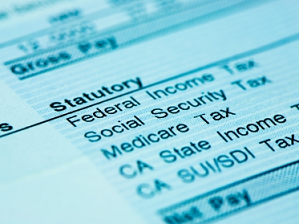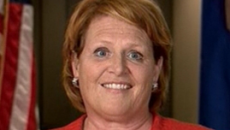Americans Still Upset About Smaller Paychecks Post "Fiscal Cliff"

It’s unfair that a “greedy” Congress take more out of paychecks, according to outraged Americans.
Gabriella Hoffman’s paycheck is a little lighter today, thanks to a payroll tax increase that is forcing millions of Americans to make the kind of tough budget cuts their representatives in Washington lawmakers seem unwilling to tackle.
Hoffman, a 21-year-old Virginian who works at a nonprofit, estimates her paycheck will be roughly $30 less this biweekly pay period, or about $780 annually, thanks to the end of a two-year cut on payroll taxes, which fund Social Security. The tax has risen back up to 6.2 percent from 4.2 percent, costing someone making $50,000 annually about $1,000 per year and a household with two high-paid workers up to $4,500.
“As a newly-graduated person, someone coming straight out of college, I don’t like the idea of having less money coming to me due to the selfish interests of people in Congress who don’t have any interest in reducing our financial problems,” Hoffman told FoxNews.com. “This is an impediment for future economic growth. It’s going to make it harder for young people like myself to get married, find a better job, you name it.”
I’m no fan of increasing taxes, but I’ve pointed out before that the sticker shock of these tax hikes may serve to wake Americans up to just how much government is costing them. How much Social Security, specifically, is costing them.
Because that’s where these tax hikes are going. Obama’s payroll tax reductions were always a bad idea, not because lowering tax burdens is a bad idea, but because Social Security is a program already running a deficit and with only the fiscal fiction of IOU’s the government has issued itself as a safety net. These tax hikes worsened Social Security’s solvency, but now that taxes have gone back up they’re hitting Americans who desperately need that money in their paychecks now.
Which underscores something conservatives have been arguing for years: Money is best left in the pockets of citizens, rather than squirreled away in government. Perhaps that is a lesson more Americans are growing to understand.







